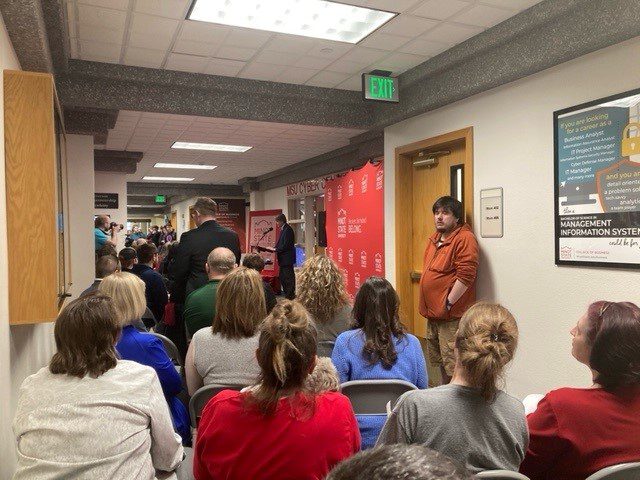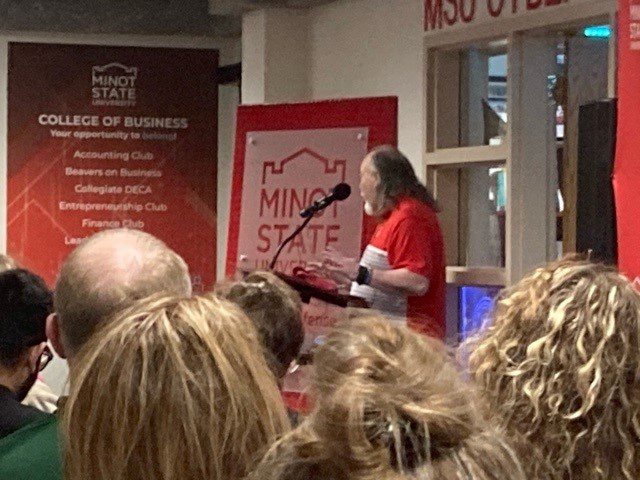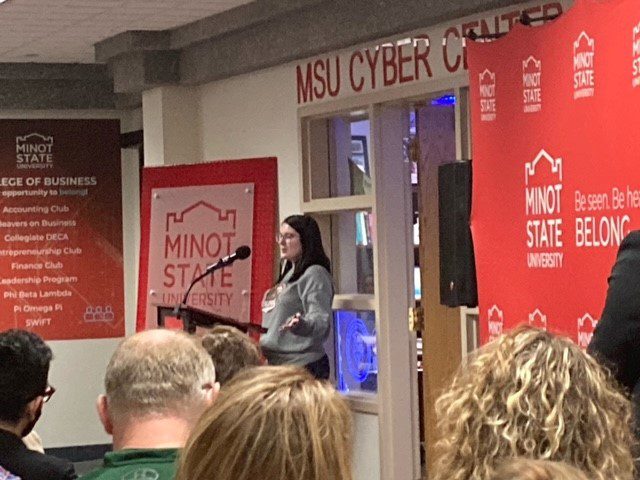

MINOT — Minot State University announced on Wednesday that its Management Information Systems (MIS) program is now a Center of Academic Excellence in Cyber Defense (CAE-CD), as designated by the National Security Agency (NSA) and Department of Homeland Security (DHS).
This award is given to certain institutions that offer education on the topic of cyber security, and only the ones that reach the rigorous standards of a federally recognized CAE-CD, producing qualified students to be sent out into this type of workforce. Only a little more than 300 colleges in the Unites States have received this award.
“This is such a big deal,” expressed Dr. Mark Hagerott, Chancellor of the North Dakota University System.
“Cyber security and information assurance are topics seemingly growing more important by the day,” said Dr. Steven Shirley, president of Minot State. “The way we communicate, conduct our finances, receive our heating, cooling, water and electricity, access healthcare, enjoy music, movies, and entertainment, and virtually every other facet of life, is now interconnected and supported through the internet. The protection of data directly impacts nearly every person on the planet.”
Shirley also mentioned international cyber hackers and hostile nations “are seeking to disrupt every second of every minute of every hour of every day.”
“Education in the area of cyber defense fits perfectly into exactly the kinds of education MSU is providing,” Shirley continued.

Chad Fenner, the assistant professor in BIT, said, “This is not something that I did on my own. My name might be on the front of this, but this is all from help that I’ve gotten from the bottom to the top. Without the students we have, the desire they have to learn this skill, we wouldn’t see what’s behind this.”
Fenner had two of his students speak at the event, Erik Ellingson, a retired Air Force veteran from Minot, and Amber Schmaltz, a junior at MSU from Rugby.
“I cannot say thank you enough to Mr. Fenner for setting this up,” said Ellingson.

“I know it’s very intimidating for people, when they here about [certain] technology, [thinking], ‘I don’t understand it,’” Schmaltz recognized. “But you really don’t have to have any background knowledge in technology. For me, I didn’t have very much knowledge, so if I can do it, you can do it.”